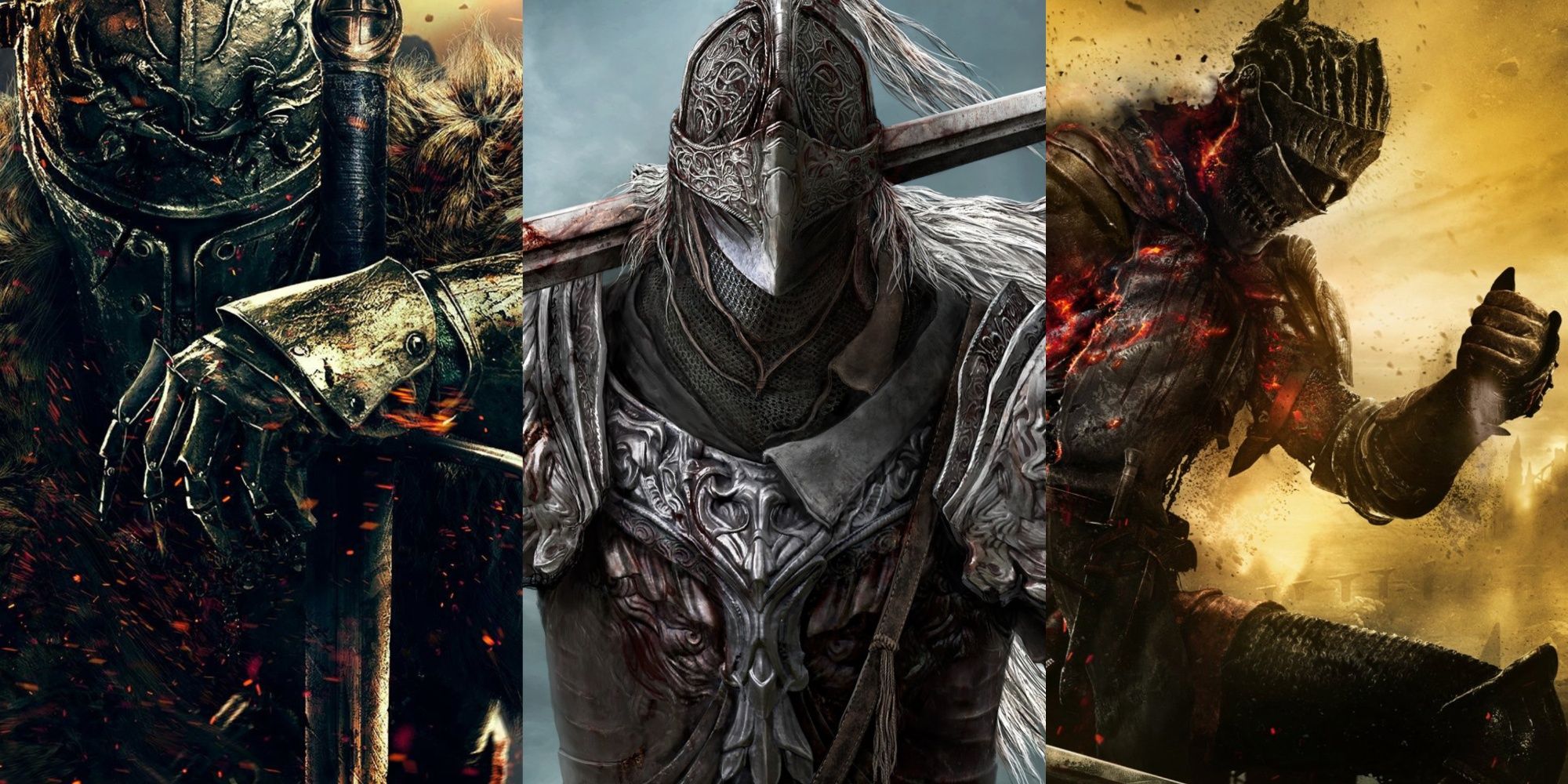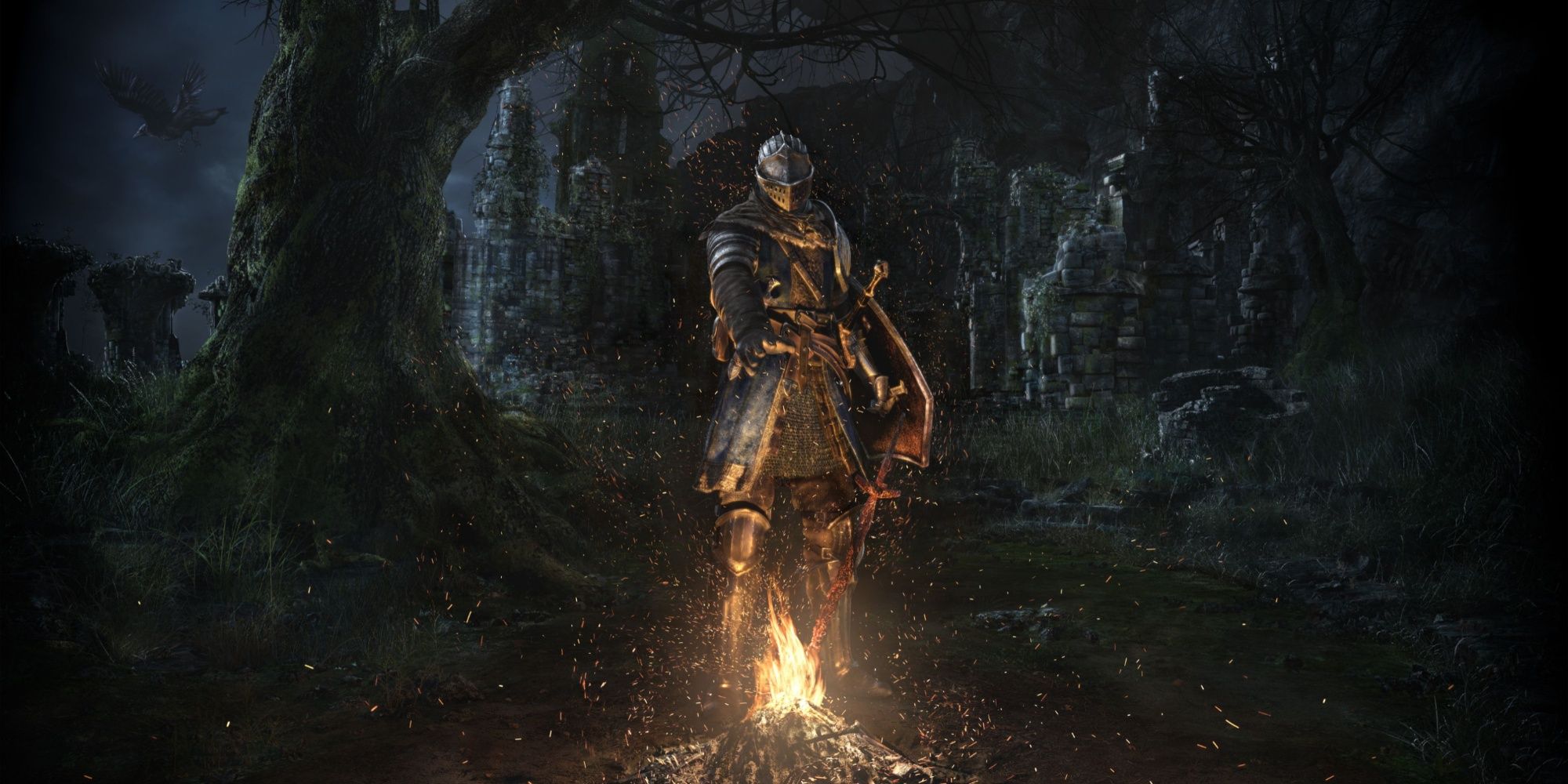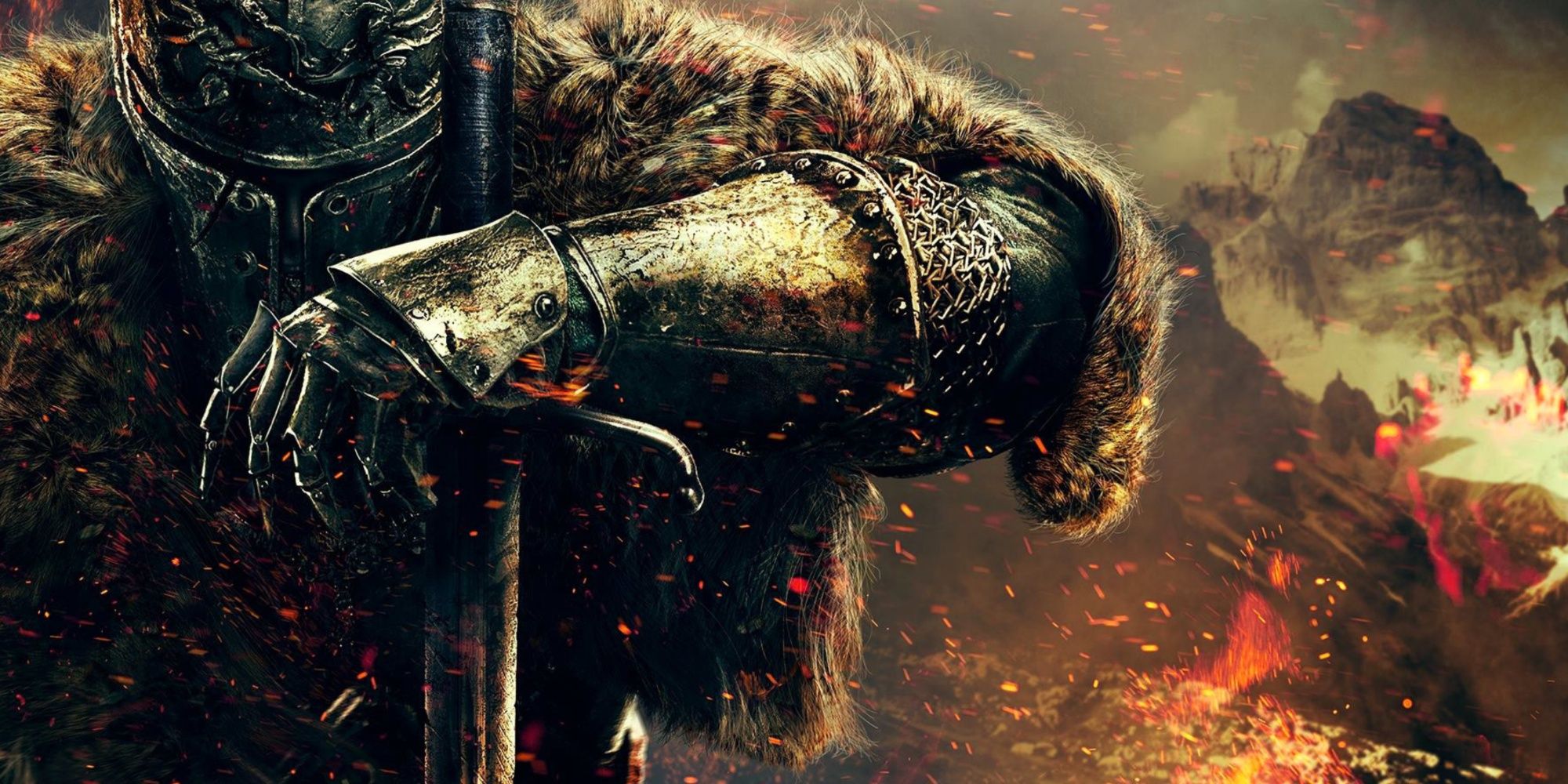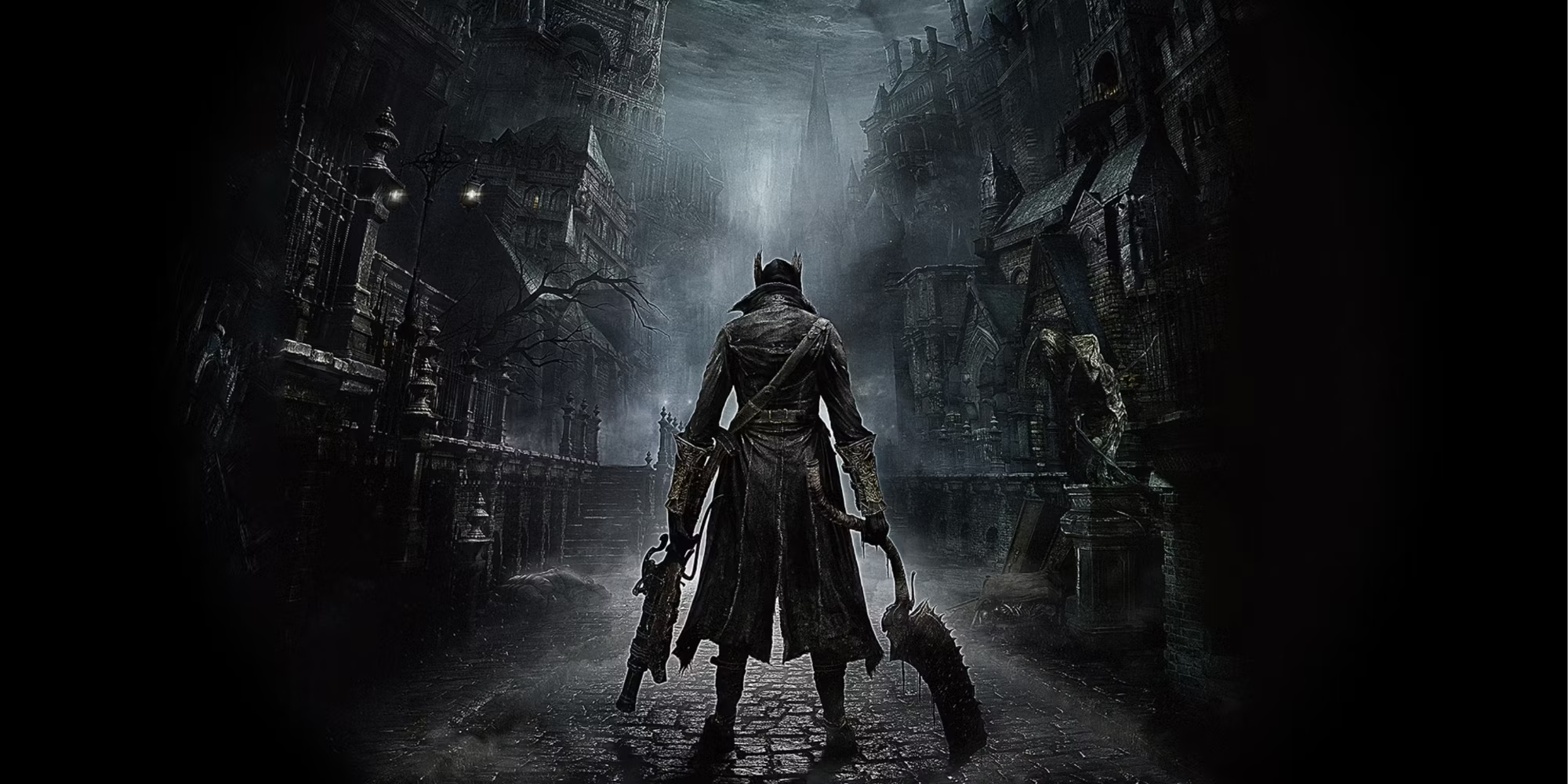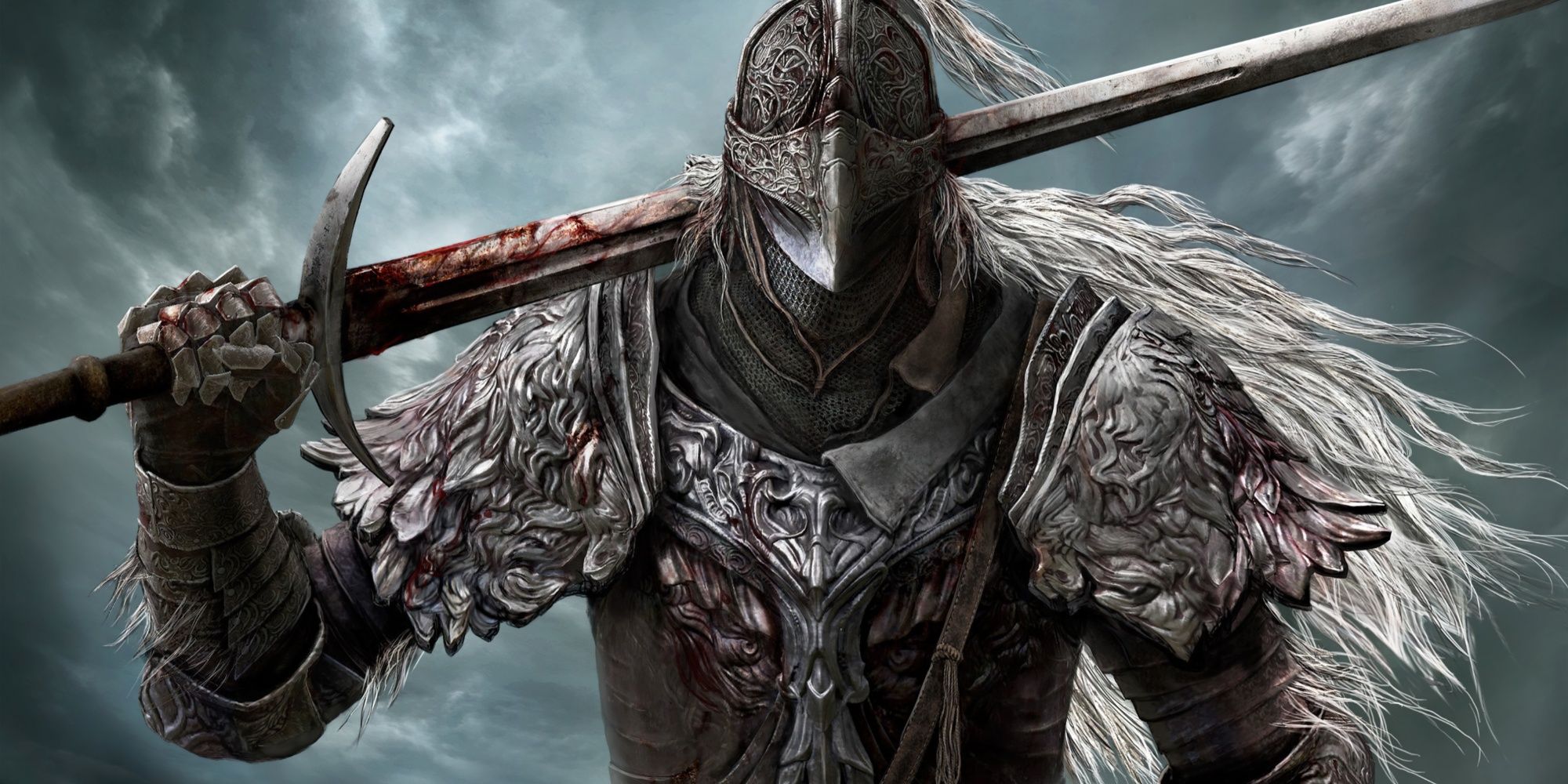Soulsborne games are known for many things: their punishing gameplay, the hauntingly beautiful atmospheres, and their creative boss designs. But something you might not think of immediately are the protagonists.
Across Demon’s Souls, the three Dark Souls games, Bloodborne, Sekiro, and Elden Ring, the main characters can boast a wide variety of achievements: bringing down powerful warriors, dragons, and even gods, each of them shaping the futures of their respective worlds.
7 Slayer Of Demons: Demon’s Souls
The original Soulsborne protagonist is perhaps more classically heroic than any of the other characters on this list. The “Slayer of Demons” does exactly that, claiming the souls of powerful Demons in an attempt to lull an ancient evil known as the Old One back to sleep. Alternatively, you can take the Demon’s side, killing the Maiden in Black and plunging the world into fog.
It’s a pretty clear-cut story—by Soulsborne standards, anyway, where the lines between good and evil are rarely so easy to spot. And while that’s not necessarily a bad thing, it does mean the Slayer of Demons is the least interesting of the Soulsborne Protagonists.
6 Chosen Undead: Dark Souls
The core narrative of the Chosen Undead’s journey is fairly simple: kill godlike beings until you’re ready to save the world (sort of). And the enemies they defeat are impressive, although most of the other Soulsborne Protagonists face similar odds. However, where the Chosen Undead falls short is in how their story ends.
They can either sacrifice themselves (perhaps unwittingly) as fuel to continue Gwyn’s Age of Fire, or follow Darkstalker Kaathe’s prompting and usher in the Age of Dark. Which option is better is up for debate, but it does feel like, either way, they’re furthering someone else’s agenda. Worse still, evidence from the latter games suggests that the choice is somewhat irrelevant, as the cycle of light and dark will only continue.
5 Ashen One: Dark Souls 3
Given that Dark Souls 3 contains numerous callbacks to its predecessors, it should come as no surprise that the Ashen One matches the protagonists of the prior Souls games in terms of accomplishments. Debating whether killing Manus or Gael is more impressive won’t get us very far.
And the Ashen One's endings are almost identical to the options presented to the Chosen Undead as well: they can attempt to link the fire (though this time it fails) or they can usurp the fire with the help of Yuria, ushering in a new age. But they can also simply allow the fires to die, and hang out with the Firekeeper while the world ends. It’s not the flashiest option, but it does make the Ashen One perhaps the only protagonist on this list to find true peace.
4 Bearer Of The Curse: Dark Souls 2
Dark Souls 2’s Bearer of the Curse has a very similar journey to the Chosen Undead, killing those who bear powerful souls until they are ready to take on the responsibility of choosing between linking the fire and casting the world into darkness. You don't actually have the option in this case, as what the Bearer of the Curse does after taking the Throne of Want is left ambiguous.
However, unlike the Chosen Undead, the Bearer of the Curse has an alternate path: following Aldia’s questline allows them to instead walk away from the Throne, searching for another solution. Once again, the result of this decision is never revealed, but at the very least the Bearer of the Curse is taking their own path, fighting to break the cycle.
3 Sekiro – Sekiro: Shadows Die Twice
In much the same way Sekiro doesn’t quite fit in with the other Soulsborne games, Sekiro, the character, stands out on this list. He has a name and a full backstory, and is more fleshed-out than any of his fellow protagonists. He has interesting relationships with other characters, whether that’s his father, Owl, or Kuro, the boy he is sworn to protect.
However, while he is narratively more interesting, Sekiro can’t quite match the accomplishments of his counterparts. He’s certainly no slouch in combat, but the scope of his game just isn’t at the same level; the vast majority of his enemies are augmented humans, rather than godlike beings. That said, getting the secret ending where both Sekiro and Kuro live (in a manner of speaking, anyway) leaves Sekiro’s story open to be continued. If From Software ever gives him a sequel, he could rise up this list.
2 Hunter: Bloodborne
The Hunter from Bloodborne kills ancient eldritch horrors instead of gods or demons. That's arguably more impressive, although the fact that it's easier for feeble human minds to understand Seath the Scaleless than the Orphan of Kos doesn’t necessarily mean Seath is some sort of pushover.
The real reason the Hunter is near the top of this list lies in how their story ends. Their first two options are similar to those seen by the Chosen Undead: the Hunter can leave the dream they've been trapped in or take over Gehrman’s role as its caretaker, guiding future Hunters. In each case, the cycle continues, though the Hunter’s position within it changes.
But like the protagonists of Dark Souls 2 and 3, the Hunter has another option: by defeating the Moon Presence, they can become a god. Of course, doing so turns them into some sort of squid, and who knows what happens after that or how much of the original Hunter is even left. Still, it's inarguably a unique ending on this list.
1 Tarnished: Elden Ring
Elden Ring’s Tarnished has a pretty clear advantage over the other characters on this list: their world is much larger. As a result, they have far more enemies felled to their name. Many of the other Soulsborne protagonists have killed gods, but none can match the Tarnished in terms of sheer volume.
And their cross-kingdom killing spree is rewarded. Upon completing their quest, the Tarnished is presented with a wide variety of options, most of them extremely positive (at least by Soulsborne standards). They can rule the Lands Between in a variety of different ways, abandon it, or destroy it entirely, giving them more control over their destiny than any other Soulsborne protagonist.

